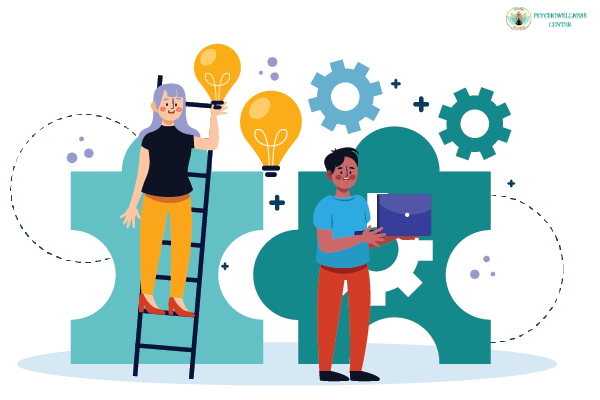In a world that’s constantly evolving, the ability to adapt and thrive in changing environments is becoming increasingly crucial. Adaptive intelligence, a concept that encompasses this ability, is gaining recognition in various fields, including psychology, education, and organizational behaviour. This blog delves into what adaptive intelligence is, why it matters, and how it can be nurtured and developed.
What is Adaptive Intelligence?
Adaptive intelligence refers to the capacity to effectively respond to new, complex, and unpredictable situations. Unlike traditional intelligence, which is often measured by static cognitive abilities such as memory, reasoning, and problem-solving, adaptive intelligence focuses on how well an individual can adjust their thinking and behaviour in response to changing circumstances. It involves a combination of cognitive flexibility, emotional regulation, resilience, and practical problem-solving skills.
The Components of Adaptive Intelligence
-
Cognitive Flexibility: This is the ability to flip between distinct ideas or to think about many concepts at the same time. Cognitive flexibility allows individuals to adapt their thinking and approach to suit new situations.
-
Emotional Regulation: Managing one’s emotions effectively is crucial for adaptive intelligence. It involves recognizing and understanding one’s emotions, as well as those of others, and using this understanding to navigate social interactions and decision-making processes.
-
Resilience: The ability to bounce back swiftly from adversity is Resilience. It is an essential component of adaptive intelligence, as it enables individuals to bounce back from setbacks and continue to function effectively despite adversity.
-
Practical Problem-Solving: Adaptive intelligence requires the ability to identify practical solutions to problems that arise in dynamic environments. This involves not only logical reasoning but also creativity and resourcefulness.
Differences Between Adaptive Intelligence and Other Forms of Intelligence
Adaptive intelligence is distinct from other types of intelligence, such as analytical intelligence (IQ) and emotional intelligence (EQ). Here’s how it differs:
-
Analytical Intelligence (IQ): IQ measures cognitive abilities such as logical reasoning, mathematical skills, and verbal comprehension. While important, IQ is often static and does not necessarily predict success in dynamic and unpredictable environments.
-
Emotional Intelligence (EQ): EQ involves understanding and managing one’s own emotions and those of others. It is crucial for interpersonal relationships and leadership. Adaptive intelligence, while overlapping with EQ in terms of emotional regulation, goes further by encompassing problem-solving and learning agility in new situations.
Why Adaptive Intelligence Matters
Adaptive intelligence is essential in today’s fast-paced world for several reasons:
-
Workplace Success: In the workplace, job roles and responsibilities are constantly evolving. Employees with high adaptive intelligence are better equipped to handle these changes, learn new skills, and remain productive.
-
Personal Relationships: Adaptive intelligence plays a vital role in maintaining healthy Relationships. It helps individuals understand and respond to the changing emotional needs of themselves and others, leading to more harmonious interactions.
-
Mental Health: The ability to adapt to Stress and uncertainty is a significant factor in maintaining mental well-being. Those with higher adaptive intelligence are often better at coping with stress, Anxiety, and other mental health challenges.
-
Learning and Development: Adaptive intelligence fosters a growth mindset, encouraging individuals to embrace challenges and view failures as opportunities for learning. This mindset is crucial for self-improvement.
How to Develop Adaptive Intelligence
Developing adaptive intelligence is a lifelong process that can be enhanced through various strategies:
-
Mindfulness Practices: Being mindful involves focusing on the here and now without passing judgment. Practising Mindfulness can improve emotional regulation, enhance self-awareness, and increase cognitive flexibility.
-
Emotional Intelligence Training: Emotional intelligence (EQ) is closely linked to adaptive intelligence. Training programs that focus on developing EQ skills, such as empathy, emotional regulation, and effective communication, can significantly boost adaptive intelligence.
-
Continuous Learning: Engaging in lifelong learning and being open to new experiences can enhance cognitive flexibility and practical problem-solving skills. This can include formal education, professional development courses, or even hobbies and interests.
-
Stress Management Techniques: Learning and practising stress management techniques, such as deep breathing, meditation, and exercise, can build resilience and improve the ability to cope with challenging situations.
-
Reflective Practice: Regularly reflecting on experiences, both positive and negative, can help individuals learn from their actions and decisions. This practice promotes self-awareness and encourages adaptive thinking.
-
Seeking Feedback: Actively seeking feedback from others can provide valuable insights into one’s strengths and areas for improvement. This feedback can guide personal growth and enhance adaptive intelligence.
Conclusion
Adaptive intelligence is a multifaceted concept that encompasses cognitive flexibility, emotional regulation, resilience, and practical problem-solving. In an ever-changing world, the ability to adapt and thrive is more important than ever. By understanding and developing adaptive intelligence, individuals can enhance their personal and professional lives, build stronger relationships, and maintain better mental health. However, developing adaptive intelligence is a journey that can benefit from guidance and support. If you find yourself struggling with navigating challenges, seeking Online counselling or coaching can provide valuable insights and strategies tailored to your personal growth. The best counsellors in India can help you harness your strengths, manage stress effectively, and build resilience, empowering you to navigate life’s complexities with confidence and clarity. Embracing the journey of personal development with the support of an online counsellor can be a transformative step towards achieving your goals and living a fulfilling life. Whether in education, the workplace, or therapeutic settings, fostering adaptive intelligence is a valuable investment in one’s overall well-being and success.
With a reputation for excellence, Psychowellness Center provides individualized therapy services for mental health. Our services are accessible in Delhi NCR, NOIDA, Faridabad, Janakpuri, Dwarka, and Vasant Vihar, ensuring comprehensive support wherever you are.
Contribution:- Connect with clinical psychologist Dr. R K Suri and life coach Ms. Samiksha Sharma Counselling psychologist, on TalktoAngel. Their professional guidance can help you navigate your mental health journey effectively.

